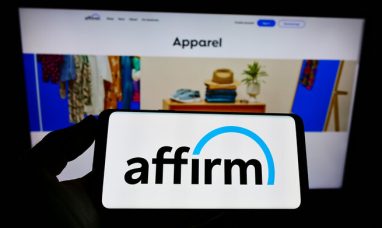A U.S. judge has ordered Wells Fargo (NYSE:WFC) to face a lawsuit alleging it defrauded shareholders by proclaiming its commitment to hiring diversity, while allegedly conducting sham job interviews with no intention of hiring non-white and female applicants. This decision marks a significant development in the ongoing scrutiny of Wells Fargo’s hiring practices.
Judge’s Ruling on Fraud Allegations
U.S. District Judge Trina Thompson in San Francisco, who had dismissed a previous version of the lawsuit last August, found direct and indirect evidence that the San Francisco-based bank intended to deceive shareholders about its hiring practices. Judge Thompson rejected arguments that there was insufficient proof of widespread fake interviews or that top officials, including CEO Charles Scharf, were unaware of these practices.
Shareholders challenged 11 statements made by the bank, which touted the success of a policy adopted in March 2020. This policy mandated that at least 50% of candidates interviewed for jobs paying $100,000 or more be from minorities, women, or other disadvantaged groups. The lawsuit cited interviews with former employees, an internal whistleblower email, and the sudden retirement of a senior wealth manager who allegedly pressured the whistleblower into conducting fake interviews.
Judge Thompson wrote, “The employee-submitted complaints, the peculiar timing of [the manager’s] departure, and defendants’ demonstrated focus on diversity issues supports a strong inference of [fraudulent intent] that is cogent and at least as compelling as an opposing inference that defendants remained oblivious.”
Wells Fargo’s Response
In response to the ruling, Wells Fargo stated it would continue to defend against the lawsuit. The bank highlighted that the Department of Justice and the Securities and Exchange Commission had closed their investigations into its hiring practices without taking action. “Wells Fargo is deeply dedicated to diversity, equity, and inclusion and does not tolerate discrimination in any part of our business,” the bank said in a statement.
Historical Context and Impact
Wells Fargo, the fourth-largest U.S. bank, has faced numerous complaints and public criticism over its business practices since 2016. The bank remains under a Federal Reserve cap on asset growth due to these ongoing issues. In June 2022, the New York Times reported on a Justice Department probe into Wells Fargo’s hiring practices, causing the bank’s share price to plummet by 10.2% over two days and wiping out more than $17 billion in market value.
The lawsuit, filed by SEB Investment Management AB and other shareholders, alleges that Wells Fargo’s public statements about its commitment to diversity were misleading and intended to defraud investors. The case, SEB Investment Management AB et al v. Wells Fargo & Co, is being heard in the U.S. District Court for the Northern District of California under case number 22-03811.
Legal and Financial Implications
The outcome of this lawsuit could have significant legal and financial implications for Wells Fargo. If the shareholders succeed in proving that the bank’s diversity initiatives were a façade, it could lead to substantial financial penalties and further damage to the bank’s reputation. Moreover, it would underscore the importance of genuine commitment to diversity and inclusion within corporate America.
Conclusion
The lawsuit against Wells Fargo over its alleged fraudulent hiring practices highlights the critical need for transparency and integrity in corporate diversity initiatives. As the case progresses, it will be closely watched by investors, regulators, and the public. The allegations, if proven true, could have far-reaching consequences for Wells Fargo and set a precedent for how companies are held accountable for their diversity and inclusion promises.
Wells Fargo’s ongoing efforts to defend against these allegations and the outcome of the lawsuit will play a crucial role in shaping the bank’s future and its relationship with shareholders. As the financial industry continues to navigate issues of diversity and inclusion, this case serves as a reminder of the importance of genuine and transparent practices in building trust and credibility.
Featured Image: Freepik









